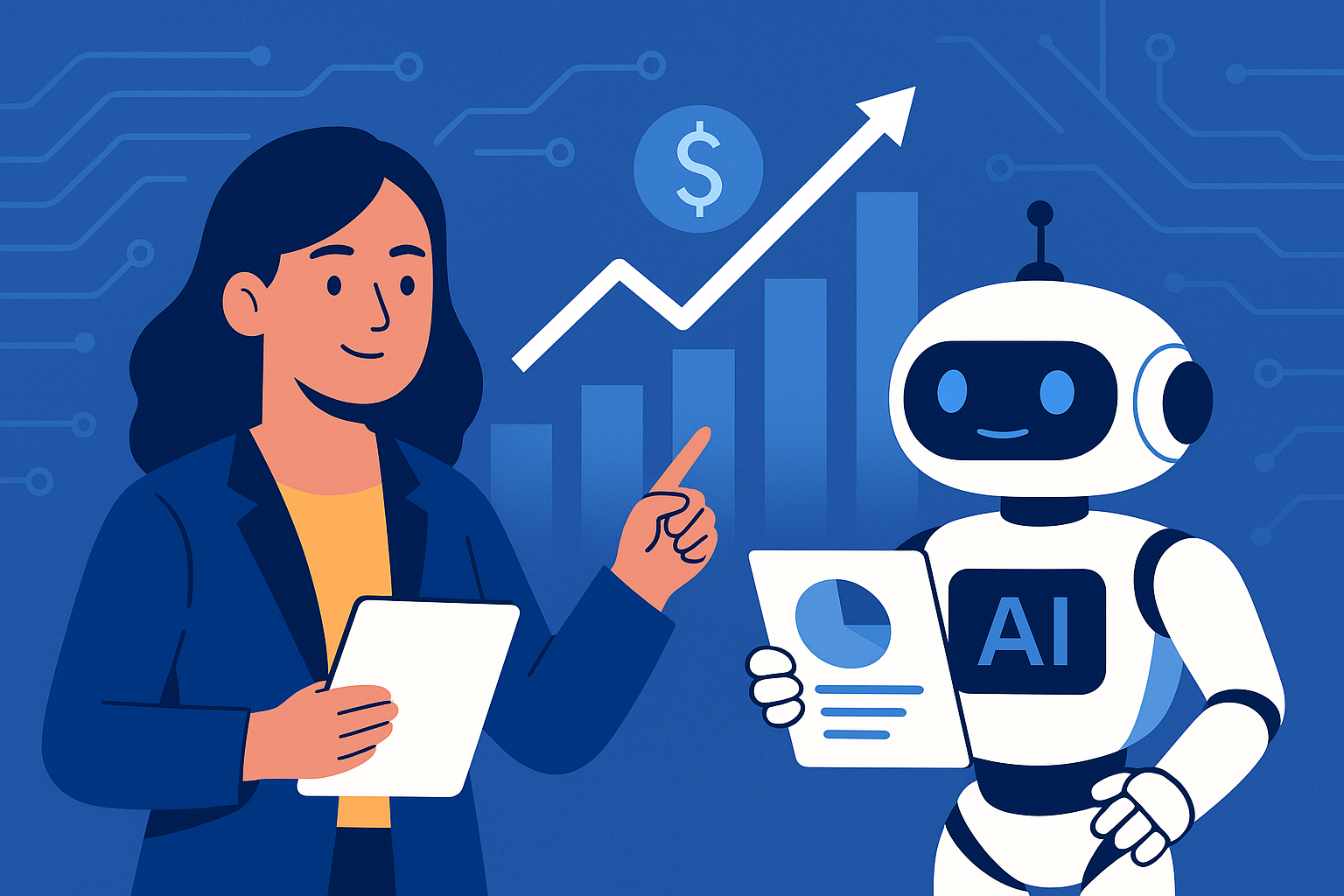
For decades, accounting has been viewed as a necessary function — a way to record transactions, balance books, and meet compliance requirements. But for growing small and medium-sized enterprises (SMEs), numbers alone are no longer enough.
Today’s competitive business landscape demands insight, not just information — a clear understanding of where the business stands, where it’s heading, and how to make the next smart move.
That’s exactly where AI-powered accounting comes in.
By transforming raw financial data into actionable intelligence, AI turns accounting from a back-office task into a strategic growth engine.
Here’s how.
Traditional accounting systems record what happened — sales, expenses, profits — but they stop there.
AI accounting goes further by interpreting those numbers, uncovering patterns and opportunities hidden in the data.
AI tools can automatically analyze your financial history and highlight:
Instead of static numbers on a report, business owners get real explanations of what’s shaping their performance — and how to improve it.
In fast-moving markets, waiting until month-end to review financials is simply too late.
AI accounting keeps your books up to date automatically — processing transactions, matching receipts, and updating dashboards in real time.
That means business leaders can see:
This instant visibility empowers faster, more confident decisions, whether it’s timing a new investment, managing inventory, or planning for growth.
AI doesn’t just organize the past — it predicts the future.
Using historical data, payment behaviors, and external market trends, AI can forecast:
These forecasts give business owners the foresight to plan ahead, anticipate risks, and act before challenges turn into crises.
It’s like having a financial advisor — built right into your accounting system.
Most SME owners aren’t accountants — and they shouldn’t need to be.
AI accounting platforms, such as ccMonet, make financial insights clear and easy to understand, even for non-finance professionals.
Through intuitive dashboards and plain-language summaries, AI explains key metrics like:
“Revenue grew 8% this month, but operational costs increased 12%. Your gross margin dropped slightly — mainly due to higher logistics expenses.”
By removing financial jargon and replacing it with clarity, AI empowers everyone — from founders to managers — to make data-driven decisions with confidence.
Growth requires confidence in your numbers.
AI reduces errors that often occur in manual accounting by automating:
Each transaction is validated automatically, ensuring reports are always reliable.
And with built-in audit trails, SMEs can demonstrate accuracy and compliance effortlessly — a key factor for building investor and stakeholder trust.
As a business grows, so does financial complexity — more invoices, more entities, more currencies.
Manual processes simply can’t keep up.
AI-powered systems scale effortlessly, automating multi-entity consolidation, multi-currency reporting, and intercompany reconciliation — without increasing headcount or cost.
That means SMEs can expand confidently, knowing their financial operations will remain just as efficient and accurate as they grow.
AI accounting transforms reports from static summaries into strategic tools.
It doesn’t just tell you what’s happening — it tells you why it’s happening and what to do about it.
For example:
“Your marketing ROI has dropped by 15%. Reallocating part of the budget toward repeat customers could increase profit margins by 6%.”
This kind of insight allows SMEs to fine-tune pricing, adjust budgets, and optimize growth plans — all based on data, not guesswork.
In the AI era, accounting is no longer just about compliance — it’s about clarity and control.
By turning financial data into intelligence, AI helps SMEs:
Platforms like ccMonet are leading this shift, empowering SMEs to transform everyday financial data into a real competitive advantage.
Because the future of business growth doesn’t just depend on knowing your numbers — it depends on understanding them.